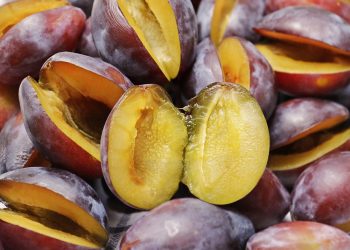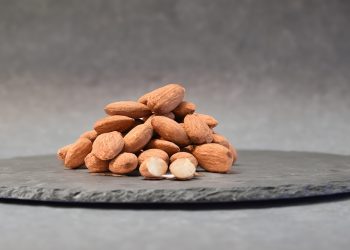Want to know how to fight inflammation? The answer lies in what you choose to put on your plate. An anti-inflammatory diet can be your secret weapon against chronic conditions, ensuring you feel your best every single day. Inflammation can be a sneaky foe; it’s often linked to diseases like heart disease, diabetes, and even cancer. By incorporating specific foods into your daily meals, you can combat this silent enemy and boost your overall well-being.
Contents
What is an Anti-Inflammatory Diet?
An anti-inflammatory diet focuses on whole, nutrient-dense foods that help to reduce inflammation in your body. It’s all about nourishing yourself with vibrant fruits, vegetables, healthy fats, and lean proteins while steering clear of processed foods and sugars. Why does this matter? Because inflammation can lead to pain, fatigue, and a host of other health issues. Choosing the right foods can empower you to live a healthier, more vibrant life.
Let’s dive into the seven must-have foods that can transform your meals and your health!
1. Fatty Fish: The Ocean’s Gift
Fatty fish like salmon, mackerel, and sardines are rich in omega-3 fatty acids, which are proven to reduce inflammation. These healthy fats can help lower blood pressure, improve cholesterol levels, and even support brain health.
Why you need it:
- Packed with nutrients: Omega-3s aren’t just good for your heart; they also play a critical role in brain function.
- Versatile: You can grill, bake, or even toss fatty fish into a salad.
How to enjoy it: Try a simple baked salmon dish with a side of roasted veggies for a meal that’s both delicious and anti-inflammatory.
2. Leafy Greens: Nature’s Powerhouse
Leafy greens like spinach, kale, and Swiss chard are filled with antioxidants, vitamins, and minerals. They are low in calories but high in nutrients, making them perfect for an anti-inflammatory diet.
Why you need it:
- Rich in antioxidants: These compounds combat oxidative stress and inflammation.
- Fiber-rich: Aids digestion and keeps you feeling full longer.
How to enjoy it: Blend spinach into your morning smoothie, or create a colorful salad featuring mixed greens, nuts, and a light vinaigrette.
3. Berries: Sweet and Satisfying
When it comes to fruits, berries are at the top of the list. Blueberries, strawberries, and blackberries are not only delicious but also loaded with antioxidants and vitamins that fight inflammation.
Why you need it:
- High in antioxidants: These little powerhouses help to reduce oxidative stress.
- Low in sugar: They satisfy your sweet tooth without the sugar crash.
How to enjoy it: Toss a handful of mixed berries into your yogurt or oatmeal for a quick, nutritious breakfast.
4. Nuts and Seeds: Tiny Nutritional Giants
Nuts and seeds, such as walnuts, almonds, and chia seeds, are packed with healthy fats, protein, and fiber. They serve as great snacks or additions to meals.
Why you need it:
- Heart-healthy fats: They help to keep your cholesterol levels in check.
- Anti-inflammatory properties: Nuts like walnuts are particularly high in omega-3 fatty acids.
How to enjoy it: Sprinkle chia seeds on your smoothie or snack on a handful of mixed nuts during the day.
5. Olive Oil: Liquid Gold
Extra virgin olive oil is not just a staple in Mediterranean diets; it’s also a fantastic source of healthy fats. Its anti-inflammatory properties come from its rich content of oleocanthal, which has effects similar to ibuprofen.
Why you need it:
- Healthy fats: Supports heart health and overall wellness.
- Versatile: Use it in dressings, marinades, or for cooking.
How to enjoy it: Drizzle olive oil over your salads or use it to sauté vegetables for an added flavor boost.
6. Turmeric: The Golden Spice
This vibrant yellow spice is more than just a pretty addition to your curry. Turmeric contains curcumin, a powerful anti-inflammatory compound that can help fight chronic inflammation.
Why you need it:
- Potent anti-inflammatory: Curcumin has been linked to reduced symptoms of arthritis and other inflammatory conditions.
- Boosts immunity: Helps to strengthen your body’s defense mechanisms.
How to enjoy it: Add turmeric to soups, smoothies, or even your morning tea for a healthful kick.
7. Avocado: Creamy and Nutritious
Avocados are rich in monounsaturated fats, which are beneficial for heart health. They also contain various antioxidants and anti-inflammatory compounds that can help reduce inflammation.
Why you need it:
- Creamy texture: Perfect for adding richness to dishes without unhealthy fats.
- Fiber-rich: Aids digestion and keeps you feeling satisfied.
How to enjoy it: Spread avocado on whole-grain toast or toss it into salads for a delightful creamy texture.
Putting It All Together: A Sample Anti-Inflammatory Meal Plan
Breakfast
- Start your day with a smoothie made from spinach, banana, mixed berries, and a tablespoon of chia seeds.
Lunch
- Enjoy a salad with mixed greens, cherry tomatoes, walnuts, and grilled salmon, drizzled with olive oil and lemon juice.
Snack
- Snack on a handful of almonds or a piece of fruit, like an apple or pear.
Dinner
- Savor a bowl of quinoa topped with sautéed kale, turmeric-spiced grilled chicken, and a side of roasted sweet potatoes.
Why You Should Care About Inflammation
Chronic inflammation can lead to serious health issues, including heart disease, diabetes, and autoimmune disorders. By adopting an anti-inflammatory diet, you not only reduce your risk of these conditions but also enhance your quality of life. You deserve to feel vibrant and energetic, and the right foods can help you achieve that.
Tips for Maintaining an Anti-Inflammatory Diet
- Stay Hydrated: Drink plenty of water and consider herbal teas that can also have anti-inflammatory benefits.
- Limit Processed Foods: Avoid sugary snacks and refined grains that can trigger inflammation.
- Practice Mindful Eating: Take the time to enjoy your meals, focusing on the flavors and textures.
Bottom Line
Incorporating these 7 must-have foods for an anti-inflammatory diet can make a world of difference in how you feel. Embrace this journey toward better health and vitality. Your body will thank you for it!
FAQ
Q: Can I still eat my favorite foods?
A: Yes! Moderation is key. Focus on including these anti-inflammatory foods while enjoying your favorites occasionally.
Q: How long before I see results?
A: You may start to feel better within a few weeks of adopting an anti-inflammatory diet.
Q: Can I follow this diet if I have specific dietary restrictions?
A: Absolutely! You can adapt these recommendations to fit your needs, whether you’re vegetarian, vegan, or gluten-free.
Take charge of your health today. Start by choosing one or two of these foods to add to your meals this week. You’re on the path to feeling fantastic!
Get Your FREE Natural Health Guide!
Subscribe now and receive our exclusive ebook packed with natural health tips, practical wellness advice, and easy lifestyle changes — delivered straight to your inbox.














